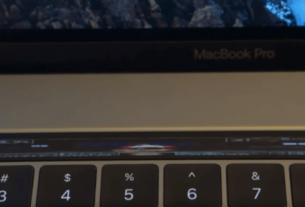The Weekend That Wouldn’t End
Users of the conversational AI platform ChatGPT discovered an interesting phenomenon over the weekend. When asked about a specific name, ‘David Mayer’, the chatbot would freeze up instantly. This strange behavior sparked conspiracy theories among users, but a more ordinary reason lies at its heart.
The Name That Wouldn’t Budge
Word spread quickly that the name was poison to the chatbot. More and more people tried to trick the service into acknowledging the name, but every attempt caused it to fail or break off mid-name. The chatbot’s response: "I’m unable to produce a response." This behavior raised questions about what could be behind such a simple yet effective way to crash the system.
A List of Names That Wouldn’t Work
Further investigation revealed that the name ‘David Mayer’ wasn’t an isolated incident. Other names, including Brian Hood, Jonathan Turley, Jonathan Zittrain, David Faber, and Guido Scorza, also caused the chatbot to freeze or fail.
Who Are These Men?
So, who are these individuals? And why does ChatGPT hate them so much? Research revealed that some of these names belong to public or semi-public figures. Brian Hood, for instance, is an Australian mayor who was falsely accused by ChatGPT last year. His lawyers contacted OpenAI, but no lawsuit was filed.
A Pattern Emerges
Further investigation showed a pattern emerging. Jonathan Turley and Jonathan Zittrain are both law professors, while David Faber is a financial journalist. Guido Scorza is an Italian politician. It’s possible that these individuals have something in common that made them targets for ChatGPT.
The Reason Behind the Freeze
Speculation led to the conclusion that internal privacy tools had flagged these names as sensitive or protected information. OpenAI confirmed on Tuesday that the name ‘David Mayer’ has been flagged by their internal privacy tools, stating: "There may be instances where ChatGPT does not provide certain information about people to protect their privacy."
Post-Training Guidance Gone Wrong
The whole drama is a useful reminder that these AI models are not magic, but rather extra-fancy auto-complete. They’re actively monitored and interfered with by the companies that make them. The incident highlights the importance of considering the source and potential biases in AI-generated information.
Hanlon’s Razor Applies
As usual, Hanlon’s razor applies: Never attribute to malice (or conspiracy) that which is adequately explained by stupidity (or syntax error). This incident serves as a reminder that AI systems can be quirky and prone to errors, but it’s also a sign of the ongoing efforts to improve and refine these models.
The Future of AI
As OpenAI continues to develop its technology, this incident will likely lead to new developments in post-training guidance and internal privacy tools. With the increasing importance of AI in our lives, understanding its limitations and potential biases is crucial for building trust and responsible innovation.
Update: Further Investigation
Further research has revealed that some users were able to bypass the freeze by using alternative queries or formatting their questions differently. This raises questions about the effectiveness of internal privacy tools and whether they should be more robust or flexible in handling sensitive information.
Related Stories
- Nvidia’s Project Digits: A ‘Personal AI Supercomputer’
- The latest development from Nvidia, aiming to revolutionize personal computing with AI.
- 49 US AI Startups That Have Raised $100M or More in 2024
- An overview of the top AI startups that have secured significant funding in recent months.
Subscribe for the Latest Tech News
Stay up-to-date on the latest tech news and developments. Sign up for our newsletters to receive exclusive insights, analysis, and commentary from TechCrunch experts.
AI, ChatGPT, OpenAI, TC Devin Coldewey Writer & Photographer
Devin Coldewey is a Seattle-based writer and photographer with over 15 years of experience in the tech industry. He has written for various publications, including TechCrunch, and has a strong background in covering AI, machine learning, and startup culture.
Most Popular Stories
- Nvidia releases its own brand of world models
- The latest development from Nvidia, aiming to revolutionize personal computing with AI.
- Google is forming a new team to build AI that can simulate the physical world
- An overview of the top AI startups that have secured significant funding in recent months.
- John Deere’s new robot lawnmower is coming for landscapers’ jobs
- The latest development from John Deere, aiming to revolutionize landscaping with automation.
Subscribe for the Industry’s Biggest Tech News
Stay up-to-date on the latest tech news and developments. Sign up for our newsletters to receive exclusive insights, analysis, and commentary from TechCrunch experts.



